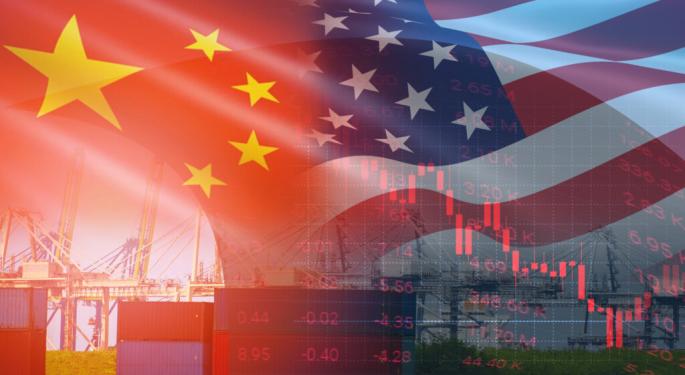China Questions Nvidia's AI Chip As US Export Controls Stoke Tensions
Nvidia Corp. (NASDAQ:NVDA) has come under renewed regulatory pressure in China, just weeks after a U.S. policy reversal opened the door for sales of its H20 artificial intelligence chip to the Chinese market.
The Cyberspace Administration of China (CAC), the nation’s top internet watchdog, raised concerns over potential security vulnerabilities in the H20 chip, a development that could complicate the chipmaker’s expansion plans in the world’s second-largest economy.
On Thursday, the CAC summoned Nvidia officials for a closed-door meeting, demanding clarity on whether the H20 chip includes backdoor security risks that could threaten national data privacy.
Also Read: MicroVision Tech On Nvidia Platform — What’s Going On?
According to a Reuters report, Chinese regulators expressed unease over the chip’s tracking and positioning features, capabilities reportedly developed in alignment with a U.S. directive designed to monitor chip usage and curb sensitive technology exports.
The concerns are linked to legislation introduced by the United States in May, which mandates that AI chips subject to export restrictions be embedded with location-verification mechanisms.
The move is part of Washington’s broader strategy to prevent advanced U.S. semiconductor technologies from being accessed by China, a critical player in the global chip market.
Nvidia specifically designed the H20 chip to comply with prior U.S. export restrictions imposed in late 2023. The chip’s rollout was seen as a strategic workaround aimed at maintaining Nvidia’s foothold in China amid escalating technological decoupling between the world’s two largest economies.
However, China’s latest inquiry introduces fresh uncertainty into Nvidia’s China strategy, just after the U.S. government eased its April ban on exports of the H20 chip to Chinese customers.
The regulatory heat in China also extends beyond national security concerns. Nvidia is reportedly under investigation by China’s State Administration for Market Regulation for potential breaches of the country’s anti-monopoly law, including conditions tied to its $6.9 billion acquisition of Mellanox Technologies in 2020.
The scrutiny comes against the backdrop of broader U.S.-China tech tensions. As Washington continues to enforce export controls on cutting-edge semiconductor technologies, Beijing has responded with retaliatory measures, including restrictions on U.S. memory chipmaker Micron Technology (NASDAQ:MU), which counts China as a key market.
Despite these headwinds, Nvidia continues to demonstrate unwavering commitment to its Chinese business. CEO Jensen Huang made a high-profile visit to the country earlier this month, underscoring the company’s long-term presence in the region. Nvidia reportedly placed an order for 300,000 H20 chipsets last week to fulfill surging demand in China, Reuters said.
Investors have largely brushed off geopolitical concerns, with Nvidia stock gaining more than 33% year-to-date amid an unprecedented boom in AI investment by major tech players.
On Monday, Nvidia made history by becoming the first publicly traded company to reach a $4.3 trillion market capitalization, closing 1.87% higher at $176.75.
The milestone came just two weeks after it crossed the $4 trillion threshold, placing it $500 billion ahead of Microsoft Corp. (NASDAQ:MSFT), the world’s second-most valuable public company.
NVDA Price Action: NVDA stock is trading higher by 1.72% to $182.37 premarket at last check Thursday.
Read Next:
Image via Shutterstock
© 2025 Benzinga.com. Benzinga does not provide investment advice. All rights reserved.
Posted-In: Government News Regulations Top Stories Tech Media



